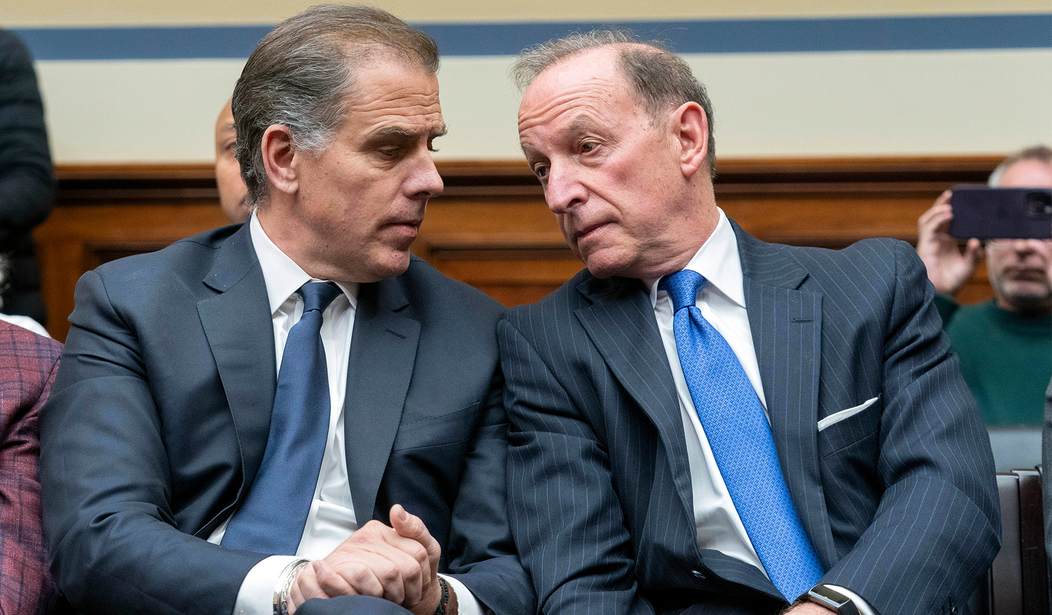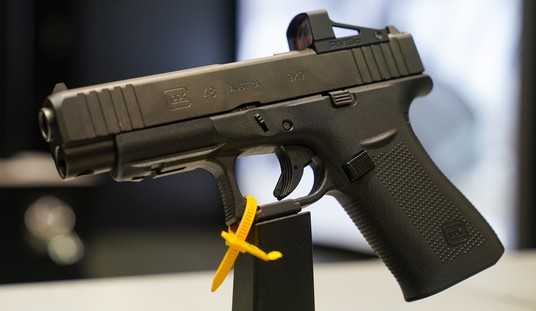If and when Hunter Biden goes to trial on federal charges for purchasing a firearm as an "unlawful user of drugs" and lying about his status on the Form 4473 he filled out before purchasing a pistol, his legal team won't get too far arguing that the statute itself is unconstitutional. Last week, U.S. District Judge Maryellen Noreika foreclosed that line of defense, at least at trial, when she rejected a motion to dismiss the charges on Second Amendment grounds.
In her 10-page order, Noreika ruled that § 922(g)(3) is not unconstitutional, at least on its face. Biden can raise an "as applied" challenge to the statute if he wants, but only on appeal once the trial has concluded. In her ruling, Noreika cited a recent Eighth Circuit decision upholding the constitutionality of the statute in question, as well as pointing out that a Fifth Circuit decision that found problems with the statute only applied to the specific defendant in that case.
Over at Reason, columnist Jacob Sullum notes some of the flaws in the Eighth Circuit decision.
Last month in United States v. Veasley, the 8th Circuit rejected a facial challenge to Section 922(g)(3), citing the legal treatment of "the mentally ill" in the 18th and 19th centuries.
In the 18th century, the appeals noted, justices of the peace were empowered to order the confinement of "lunatics" who were deemed a threat to public safety. Since such confinement "did not include access to guns," the court reasoned, it was clear that "lunatics" had no such rights. And by the late 19th century, states had begun to prohibit gun sales to people of "unsound mind." Together with "the even longer tradition of confinement," the 8th Circuit said, "these laws suggest that society made it a priority to keep guns out of the hands of anyone who was mentally ill and dangerous."
Those precedents, the appeals court said, amply justify Section 922(g)(3): "The 'burden' imposed by § 922(g)(3) is 'comparable,' if less heavy-handed, than Founding-era laws governing the mentally ill. It goes without saying that confinement with straitjackets and chains carries with it a greater loss of liberty than a temporary loss of gun rights. And the mentally ill had less of a chance to regain their rights than drug users and addicts do today. Stopping the use of drugs, after all, restores gun rights under § 922(g)(3)." The court thought the justification for Section 922(g)(3), "which is to 'keep guns out of the hands of presumptively risky people,'" is "also comparable."
The 8th Circuit assumed that drug users are analogous to "lunatics" and people of "unsound mind" who are "mentally ill and dangerous." But the U.S. Court of Appeals for the 5th Circuit rejected that analogy last year, when it overturned the Section 922(g)(3) conviction of Patrick Darnell Daniels Jr., a Mississippi man who was caught with a gun and the remains of a few joints after he was pulled over for driving without a license plate in April 2022.
"Just as there was no historical justification for disarming a citizen of sound mind, there is no tradition that supports disarming a sober citizen who is not currently under an impairing influence," the 5th Circuit said in United States v. Daniels. "The Founders purportedly institutionalized the insane and stripped them of their guns; but they allowed alcoholics to possess firearms while sober. We must ask, in Bruen-style analogical reasoning, which is Daniels more like: a categorically 'insane' person? Or a repeat alcohol user? Given his periodic marihuana usage, Daniels is firmly in the latter camp. If and when Daniels uses marihuana, he may be comparable to a mentally ill individual whom the Founders would have disarmed. But while sober, he is like the repeat alcohol user in between periods of drunkenness."
The Fifth Circuit decision, unlike the ruling out of the Eighth Circuit, involved an "as applied" challenge brought by Patrick Darnell Daniels after he was convicted for possessing firearms as an unlawful user of drugs and sentenced to more than 40 months in federal prison for the crime. By denying Biden's attorneys the opportunity to challenge the statute at trial Noreika is taking a conservative approach; disappointing to be sure, but not unprecedented.
As Noreika sees it, in other words, Biden has to be convicted before he can challenge his prosecution. But no matter what happens with this particular case, the Biden administration's dogged defense of Section 922(g)(3), especially as applied to cannabis consumers, belies the president's repudiation of the hardline anti-drug position that he took for decades as a senator.
Nowadays, Biden says marijuana use should not be treated as a crime and decries the disadvantages associated with marijuana possession convictions. But his Justice Department simultaneously insists that marijuana use makes people so dangerous that they cannot be trusted with guns—so dangerous, in fact, that they should go to prison for trying to exercise their Second Amendment rights. The government claims that judgment is supported by historical precedents that bear little resemblance to a 1968 law that categorically deprives people of the right to arms for no good reason.
The big problem isn't that the government is using awful analogies to try to uphold the current statute. It's that some judges are actually accepting the DOJ's position that laws banning "unlawful" users of drugs from purchasing or possessing a gun is close enough to 18th-century laws allowing "lunatics" to be locked up to pass constitutional muster.
Even the Eighth Circuit reasoned that the law was meant to prevent "anyone who was mentally ill and dangerous" from possessing a gun, which suggests that the real trigger (no pun intended) for a gun ban was the dangerousness of the individual in question, not merely the state of their mental health. And, of course, once someone was no longer confined, they suffered no disability under the law that would prevent them from keeping or bearing arms going forward.
I don't know that Hunter Biden would have been able to make a successful argument challenging the constitutionality of § 922(g)(3) at trial, but I believe he should at least have been given the opportunity to do so before a conviction and appeal. I'm disappointed in Noreika's decision... but probably not nearly as disappointed as Hunter Biden and his attorneys are. With his trial set to take place in just about three weeks, one of their strongest defenses has been taken off the table, and won't be brought to light unless and until Biden's found guilty.









Join the conversation as a VIP Member